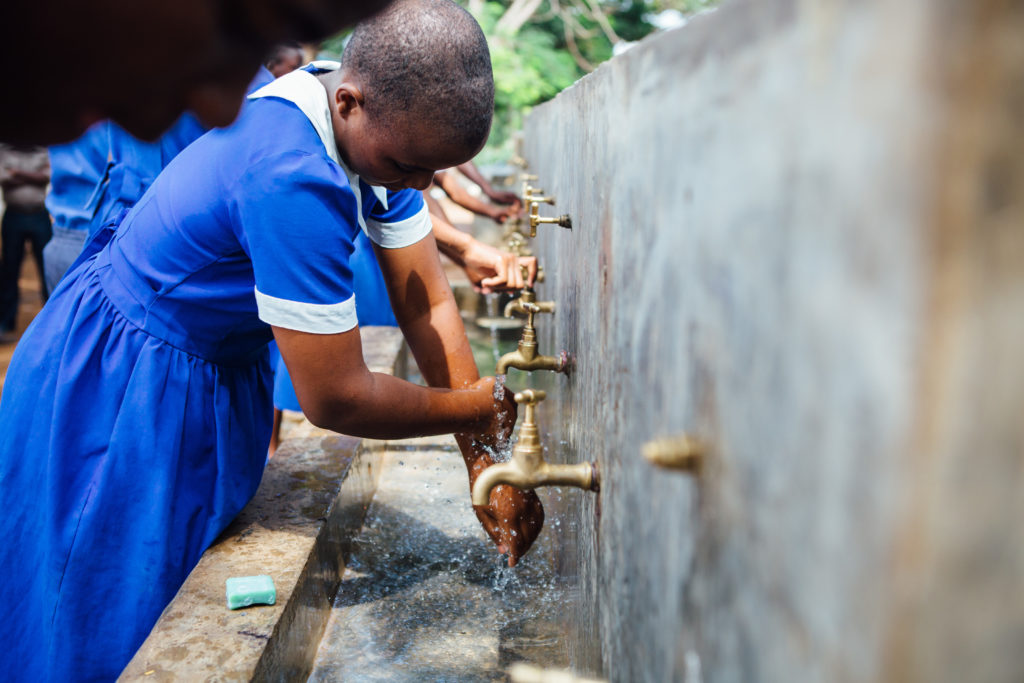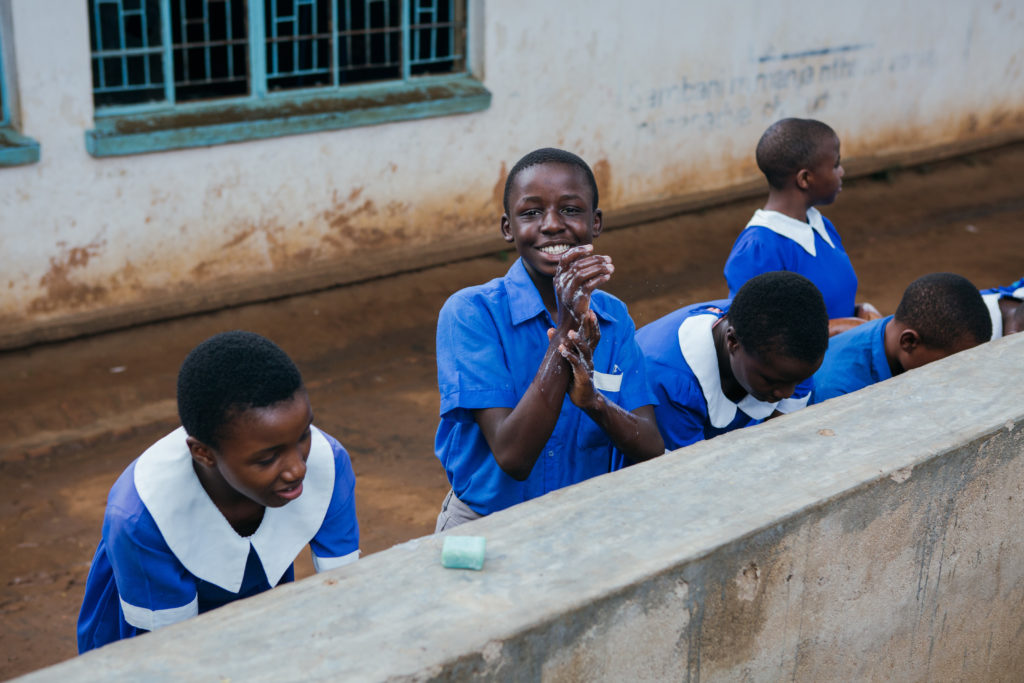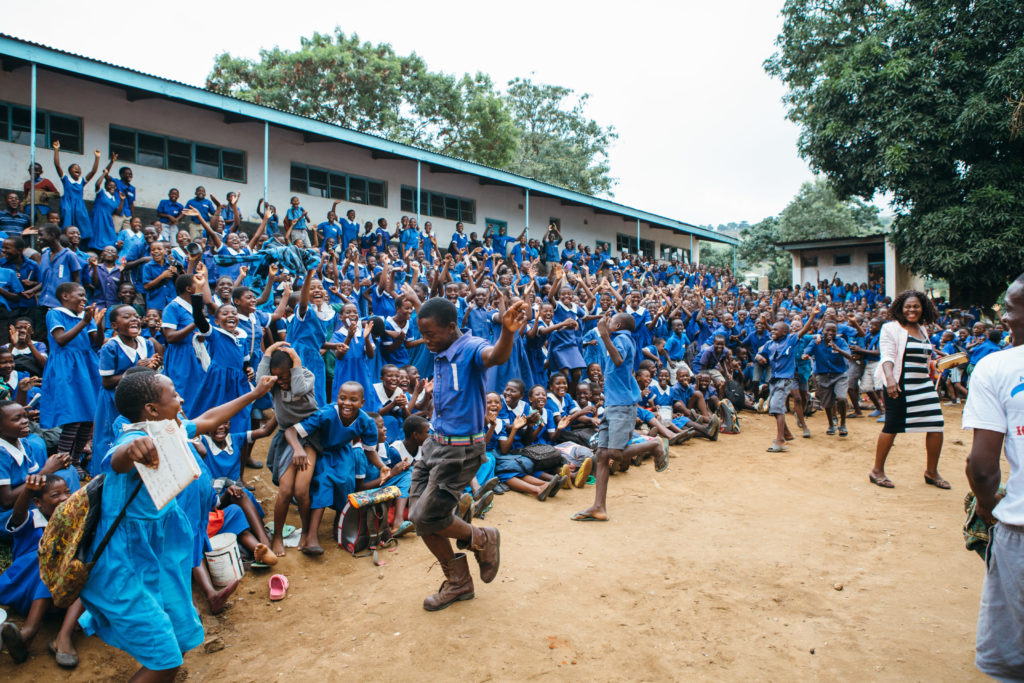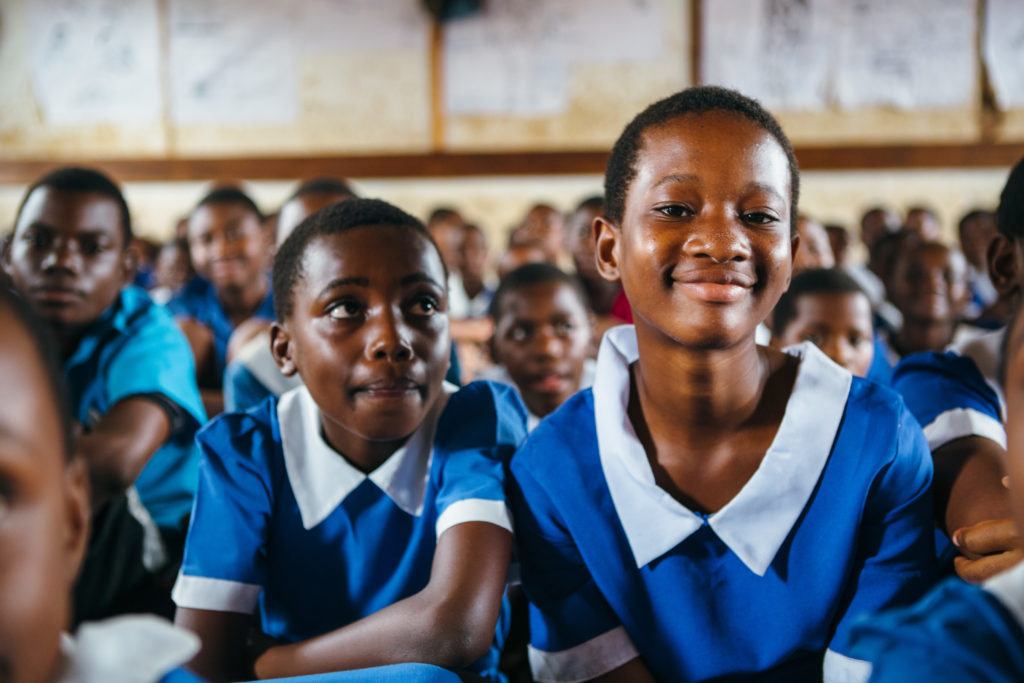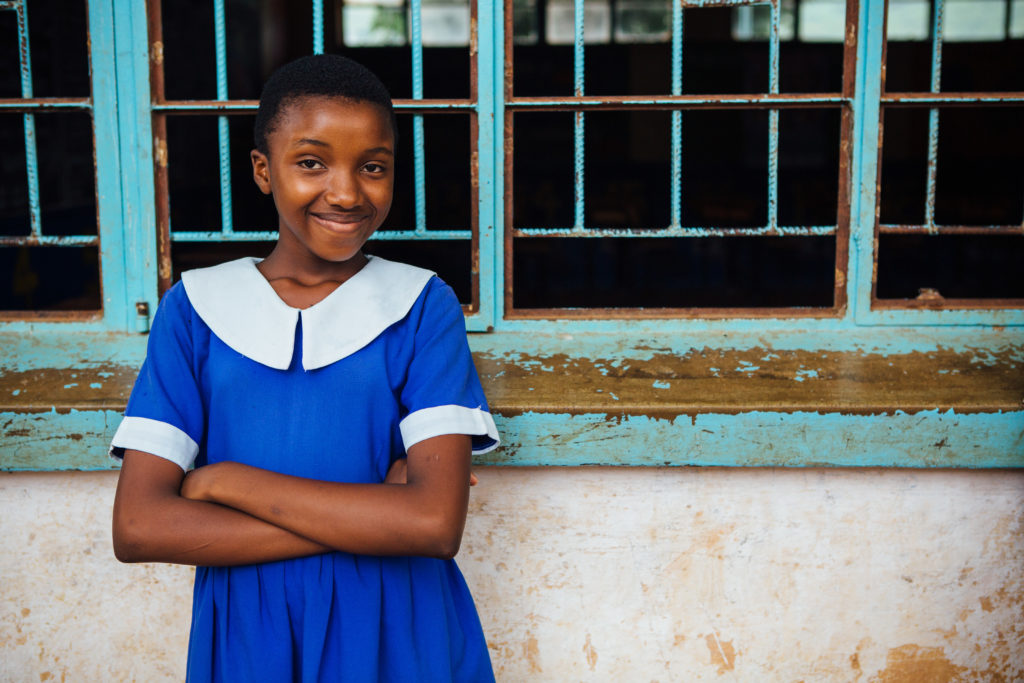Bien, déjenme darles un ejemplo de por qué el agua y el saneamiento en las escuelas son importantes. La emoción de David es palpable.
Es miembro del Club de Saneamiento de la Escuela Primaria Chilomoni en Blantyre, Malawi, y ha estado a la vanguardia en el anuncio de cambios importantes en agua y saneamiento para los 1.600 estudiantes de la escuela.
"Antes, todos bebíamos de un balde en el aula", dice. "Personalmente, sentí que se contaminaba fácilmente porque muchos estudiantes metían sus tazas en él".
Las instalaciones sanitarias anteriores también dejaban mucho que desear.
"Teníamos un solo bloque de baños y siempre había congestión", dice David. "Para evitarlo, algunos de mis amigos iban durante las clases y se perdían temas importantes. También solíamos ir a los arbustos que rodeaban la escuela".
La escuela de David construyó nuevas instalaciones de agua y saneamiento en 2014, y los cambios y sus efectos en los estudiantes de la escuela han sido enormes.
Las nuevas estaciones de agua significan que ya no habrá que sumergir vasos en cubos de agua compartidos en las aulas. Los sanitarios mejorados significan que ya no habrá que faltar a clase ni ir al monte. Las estaciones de lavado de manos impiden la propagación de enfermedades como el cólera. Los recursos de higiene menstrual permiten que las niñas puedan seguir asistiendo a la escuela durante la menstruación.
El Club de Saneamiento del que forma parte David se encarga de promover el cambio de comportamiento en torno a la utilización de las nuevas instalaciones y recursos, y uno de los métodos que utilizan son los juegos.
"Nunca imaginamos que los juegos pudieran usarse para promover la higiene", dice David. "¡Es muy emocionante! Nuestros baños ahora están siempre limpios porque los estudiantes saben cómo usarlos correctamente".
David dice que su juego favorito es el Mundial de Baños. Se coloca una portería con un agujero en forma de retrete, y los estudiantes intentan patear el balón por él. Si fallan, los demás gritan que ahora tienen que limpiar el inodoro; es una forma de recordarse mutuamente que deben asegurarse de que los bloques del inodoro se mantengan limpios.
Beatrice Kamphata es profesora en la escuela Chilomoni y colabora en la dirección del Club de Saneamiento. Explica que el club se formó en 2004 cuando Water For People empezó a capacitar al profesorado de la escuela en la promoción de la higiene, y su influencia ha crecido desde la construcción de las nuevas instalaciones en 2014. Beatrice sonríe al señalar que la matrícula ha aumentado en casi 300 alumnos desde 2014, lo que atribuye a las nuevas instalaciones y recursos.
"Hemos visto una mejora en la confianza de las niñas y en su rendimiento en clase después de tener nuevos vestuarios para niñas en nuestra escuela", dice Beatrice.
También hay toallas sanitarias e incineradores disponibles para las niñas mientras tienen el período, y Beatrice dice que estos recursos de higiene menstrual han sido el catalizador para mantener a las niñas en la escuela y permitirles pasar a la escuela secundaria.
"Las zonas de bajos ingresos de Blantyre, donde se ubican la mayoría de nuestras escuelas, sufrieron una serie de brotes de cólera hace algunos años", dice Margory. "Hemos colaborado con Water For People para garantizar que los estudiantes adquieran habilidades para prevenir el cólera y las enfermedades diarreicas".
Margory Matthews Banda trabaja con el Ministerio de Educación de Malawi como Coordinadora de Salud y Nutrición Escolar en Blantyre. Supervisa 61 escuelas, asegurándose de que cada una cuente con instalaciones adecuadas de agua, saneamiento e higiene, al igual que la Escuela Primaria Chilomoni. Uno de sus principales objetivos con esta iniciativa es prevenir la propagación de enfermedades.
Margory afirmó que los clubes de higiene escolar, como el de la escuela primaria Chilomoni, han sido fundamentales en esta tarea al promover el lavado de manos en las escuelas. "¡Esto ha contribuido en gran medida a la prevención del cólera!", afirma Margory.
Como coordinadora distrital, Margory tiene una visión amplia sobre la importancia de que las niñas permanezcan en la escuela. "Quedarse en casa porque, como niña, no tienes dónde cambiarte las toallas sanitarias es la forma más cruel de discriminación contra la mujer", afirma. "En el futuro, esta niña será mujer y, debido a la mentalidad que recibió en su infancia, tendrá baja autoestima para aspirar a mejores puestos en la sociedad. ¡Fortalezcamos la confianza ahora para tener más mujeres líderes en el futuro!"
Las perspectivas para las escuelas de Blantyre son prometedoras, ya que una a una construyen mejores instalaciones de agua y saneamiento, empoderando a más estudiantes como David. El próximo reto, según Margory, es seguir el ritmo del aumento de la matrícula para garantizar que haya suficientes baños para el número cada vez mayor de estudiantes que ahora pueden asistir a la escuela.
Creemos que es un buen problema.
